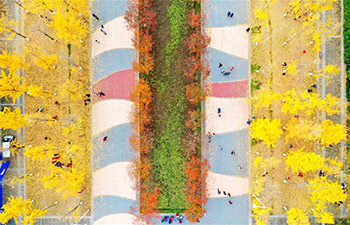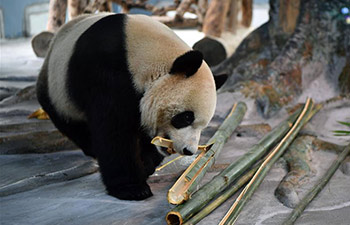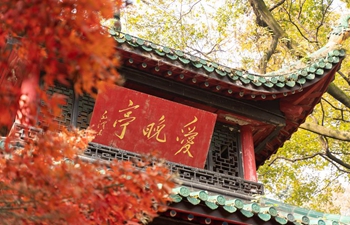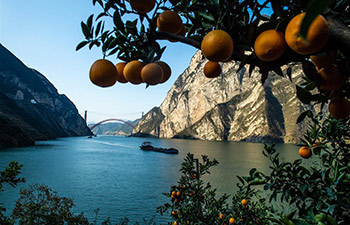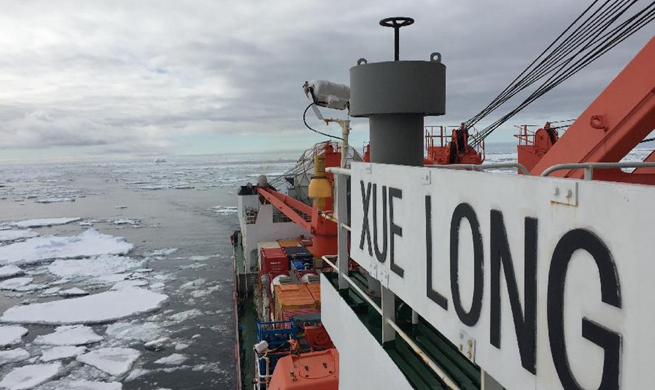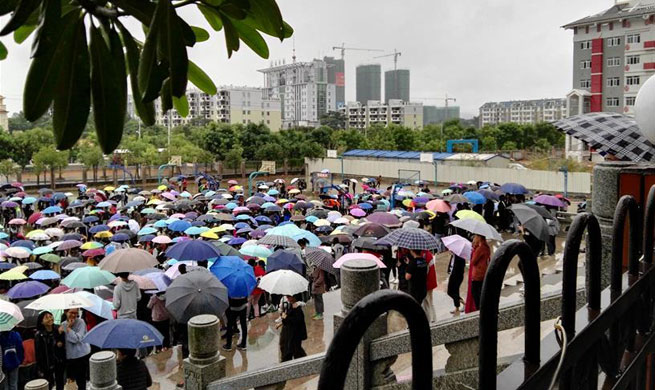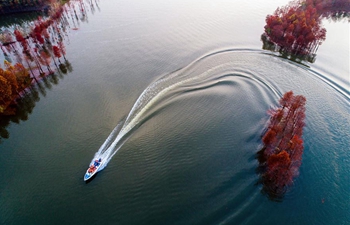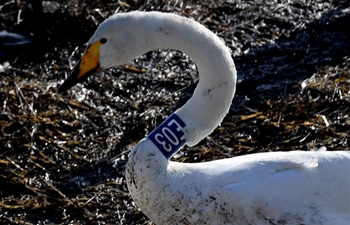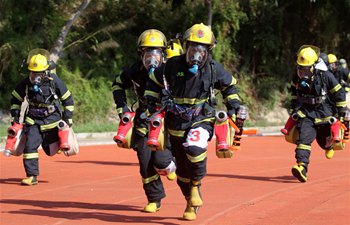LANZHOU, Nov. 26 (Xinhua) -- China is witnessing the melting of its glaciers as global temperatures rise.
A report released by international environmental protection organization Greenpeace shows that against the background of global warming, glaciers in China have been melting at a rapid pace since the 1990s. Compared with the 1950s, 82.2 percent of China's glaciers are shrinking, and the entire area has decreased by 18 percent, according to the report.
The report said small glaciers with an area smaller than 1 square km are more susceptible to the impact of climate change.
Writing of the report was led by Shen Yongping, a researcher with the Chinese Academy of Sciences (CAS). It was completed with cooperation from Greenpeace and an institute under the Gansu Academy of Sciences.
Shen and his team of experts conducted a survey of five major glaciers in China from June to September. Based on the survey and previous data, Shen concluded that the melting of glaciers had become the "new normal."
Shen said that among the glaciers, the Urumqi Glacier No. 1 in northwest China's Xinjiang Uygur Autonomous Region struck him the most. The glacier is a major water source for people in Urumqi, the regional capital, and the biggest glacier on the upper reaches of the Urumqi River.
According to Shen's report, the Urumqi Glacier No. 1 has been shrinking since experts started observing it in 1959. In 2001, the glacier's area shrank to 1.71 square km. Seven years later, the area retreated to 1.59 square km. This year, the area fell to 1.51 square km. Since 2001, the glacier's area has tumbled by 11.7 percent.
"Without glaciers and snow, there would be no oases in the northwest, not to mention the people that thrived on the land there," Shen said.
The Laohugou Glacier No. 12 in Gansu Province shared a similar fate. The glacier has continued to shrink since 1990. It is the biggest valley glacier in the Qilian Mountains in northwest China, and a major water source for the Hexi Corridor, part of the ancient Silk Road in northwest China.
"The bottom of the Laohugou Glacier No. 12 retreated 30.95 meters from 2015 to 2017," said Qin Xiang, an expert with CAS.
Rising temperatures, changes in precipitation and increasing extreme weather cases have led to the glaciers' melting, as global warming worsens, experts say.
"Melting glaciers exacerbates the water crisis and causes floods, avalanches, and glacier lake outbursts," Shen said. "The impact of melting glaciers has shifted from sustainable use of water resources to worsening natural disasters."
The Chinese government is taking a variety of countermeasures. The China Meteorological Administration has heightened efforts in observing glaciers and frozen soil. In June last year, CAS re-launched a comprehensive survey on the Qinghai-Tibet Plateau. Scientists began to conduct surveys on glaciers, lakes, etc., to achieve systematic solutions on glacier protection.
"Observations and scientific surveys are pre-conditions for protection," said Tao Hui, with CAS.
Local authorities have also taken action.
In Xinjiang, the regional government has banned glacier tours and prevents any behavior deemed harmful for the ecosystem of local glaciers. Last year, a government plan was issued to enhance research on glacier protection.
Yan Weitao, deputy head of the environmental protection bureau of Urumqi County under the jurisdiction of the regional capital, said 65 herdsmen previously living in the core area of the Urumqi Glacier No. 1 have been relocated. The government compensated them for their grassland.
"A total of 37.86 million yuan (5.45 million U.S. dollars) of grassland expropriation and relocation fees was given out," Yan said. "We also restored the grassland later."
In Gansu, tours to the Laohugou Glacier No. 12 are also off limits to visitors.
Shen Yongping suggested that locals "reasonably" change their ways of production according to local weather and water conditions, and enhance their ability against natural disasters.
"Glacier melting is a global challenge," Shen said. "We need to make joint efforts to curb the trend of global warming."




